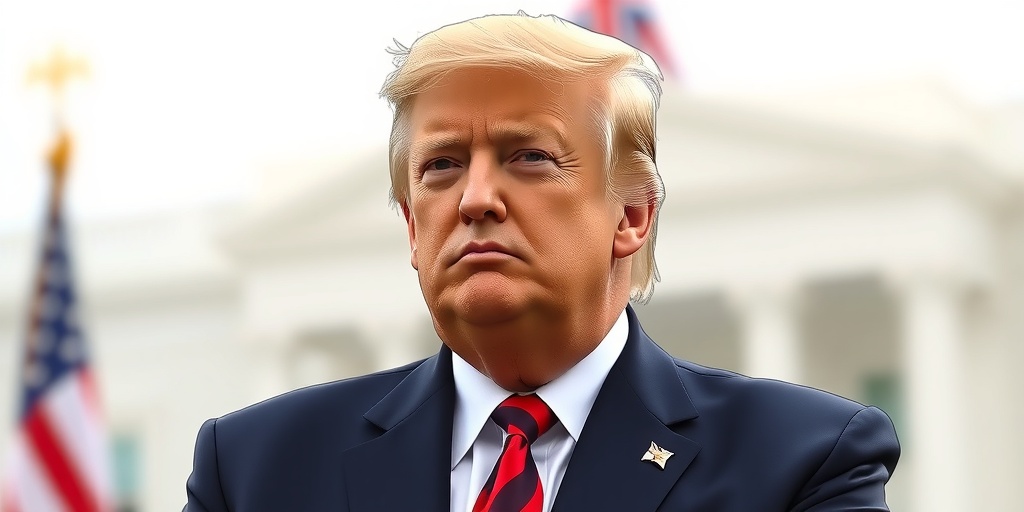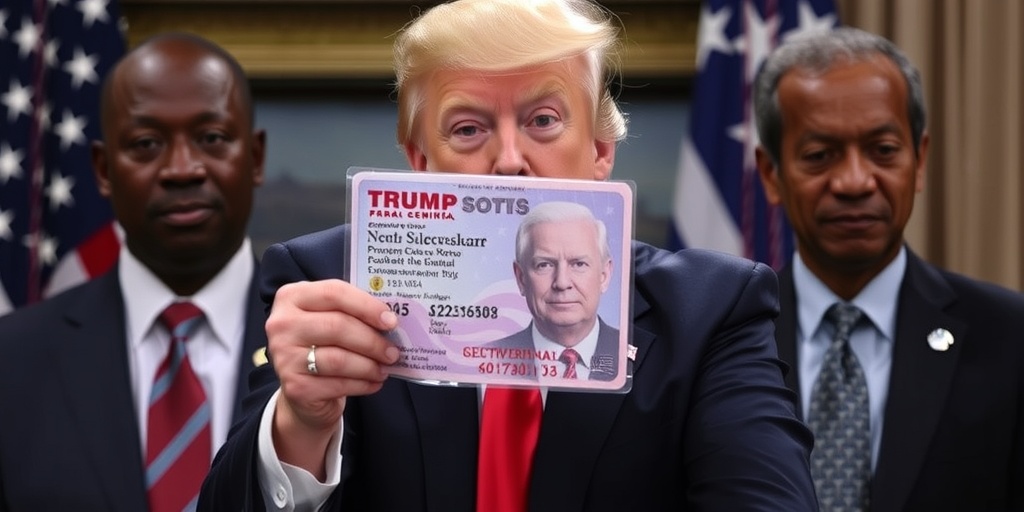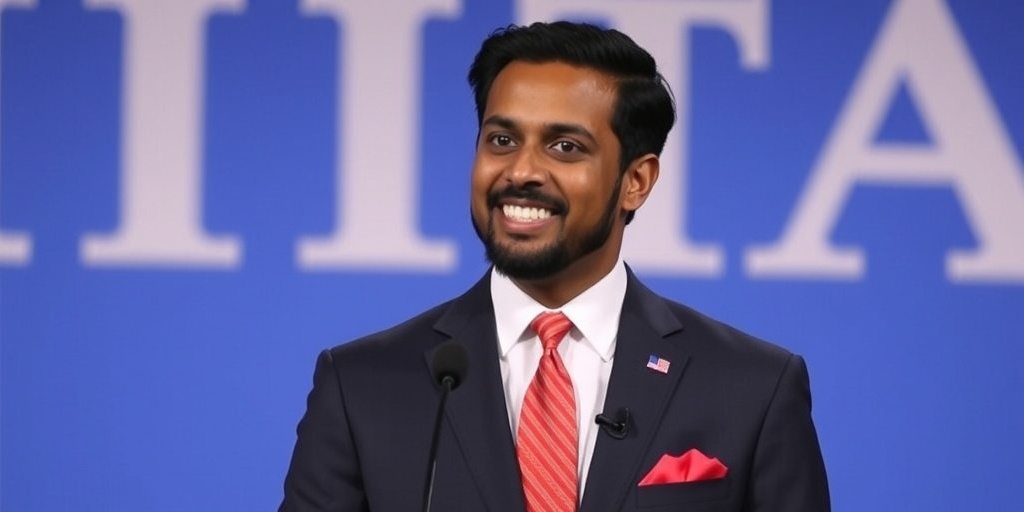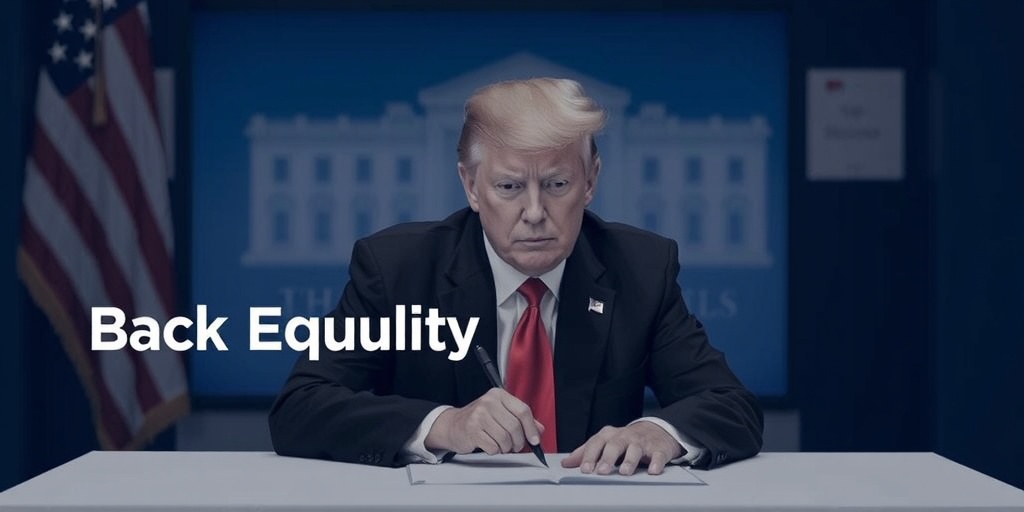Now Reading: Trump’s Wealth Promises Shift Amid Economic Reality
-
01
Trump’s Wealth Promises Shift Amid Economic Reality
Trump’s Wealth Promises Shift Amid Economic Reality

Trump’s Economic Promises Face Tumultuous Reality Amid Recession Fears
As Donald J. Trump embarks on his second term as president, he finds himself grappling with the stark contrast between his campaign promises of a booming economy and the unsettling signs of economic instability emerging early in his presidency. Just eight weeks into his new administration, the president’s rhetoric has notably shifted, with him refraining from dismissing the possibility of a recession—an unexpected turn for a leader who previously vowed to "make America affordable again."
The shifting economic landscape is underscored by a significant downturn in the stock market, notably the S&P 500, which plummeted by 2.7 percent one recent Monday, adding to a 3.1 percent decline the previous week. The uncertainty surrounding Trump’s tariff policies has caused anxiety among business leaders, leading some Republicans to voice concerns about the potential consequences of the president’s economic strategies, reflecting a substantial deviation from the optimism that characterized Trump’s campaign.
In the early months of his presidency, Trump touted an economic legacy that was largely favorable, with low unemployment rates and moderate growth. While inflation remained a concern, it had seen a marked decline from previous levels. However, the unpredictability stemming from Trump’s proposed tariffs has injected a note of caution into economic forecasts, prompting predictions from major financial institutions like JP Morgan and Goldman Sachs that a recession in the upcoming year is increasingly probable due to the tariffs.
At a recent rally, Trump had rallied supporters with enthusiastic aspirations for economic prosperity, pledging a new era marked by "soaring incomes," "skyrocketing wealth," and "millions of new jobs." Yet, this ambitious vision clashes with the reality concerning his tariff strategy, which ardent economists argue is a primary factor contributing to the dim economic outlook. Responding to questions in a Fox News interview, Trump expressed hesitation when asked about the likelihood of a recession this year, pointing instead to a "period of transition" tied to his administration’s efforts to "bring wealth back to America."
In his address to Congress, Trump acknowledged that his tariff policies might introduce “a little disturbance” but insisted that these disruptions would be minimal, an assertion that contrasts sharply with the increasing fears expressed by economists and business leaders alike.
Despite witnessing a decline in market confidence, Trump remains steadfast in his tariff strategy, recently implementing broad tariffs on Canada, Mexico, and China. While he has previously reversed course on certain tariffs, signaling a potential willingness to adapt his approach, his recent pledges indicate that he has no intention of outright abandoning the tariffs deemed vital to his "America First" economic agenda. "Our country has been ripped off for many decades, and we’re not going to be ripped off anymore," he declared on Fox News, trying to reinforce his stance.
As the turmoil unfolds in financial markets, Trump’s administration continues to navigate a turbulent economic landscape. His aides have engaged in damage control, with officials such as Howard Lutnick, the commerce secretary, asserting that there is "no chance" of a recession. Meanwhile, Treasury Secretary Scott Bessent acknowledged the challenging transition as the economy adjusts but described it as a "natural adjustment" during a necessary “detox period” away from governmental reliance.
The administration’s efforts to reassure both the markets and business leaders signal a heightened sense of urgency as pressure mounts from various stakeholders, including Republican lawmakers and industry leaders who anticipate that Trump’s tariff policies could jeopardize economic growth and stability.
In response to the present challenges, some economic analysts suggest adjusting the timing of the administration’s tariff announcements. Stephen Moore, an economist and former Trump adviser, emphasized the need for a shift in priorities, recommending a focus on fostering economic growth before implementing tariffs: "Let’s get the economy booming again and then let’s talk about tariffs," he stated.
Democratic lawmakers, including Senator Ron Wyden of Oregon, have criticized Trump’s tariff strategies, describing them as “poison” for the economy and marking the accompanying chaos as detrimental to American workers. The sentiment shared by many is clear: the ongoing turmoil could harm the economy if these tensions persist.
The pressing inquiry echoing through Washington’s corridors is how long Trump can endure a declining stock market alongside the negative media narratives that accompany such downturns. Speculation suggests that the president is closely monitoring these developments, as concerns about the stock market’s recent performance weighed heavily on both his administration and the American public.
As Trump navigates the precarious landscape of economic policy and public perception, the resilience of his promises and the effectiveness of his strategies will be put to the test, with far-reaching implications for the American economy and its citizens.
Stay Informed With the Latest & Most Important News
Previous Post
Next Post
-
 01New technology breakthrough has everyone talking right now
01New technology breakthrough has everyone talking right now -
 02Unbelievable life hack everyone needs to try today
02Unbelievable life hack everyone needs to try today -
 03Fascinating discovery found buried deep beneath the ocean
03Fascinating discovery found buried deep beneath the ocean -
 04Man invents genius device that solves everyday problems
04Man invents genius device that solves everyday problems -
 05Shocking discovery that changes what we know forever
05Shocking discovery that changes what we know forever -
 06Internet goes wild over celebrity’s unexpected fashion choice
06Internet goes wild over celebrity’s unexpected fashion choice -
 07Rare animal sighting stuns scientists and wildlife lovers
07Rare animal sighting stuns scientists and wildlife lovers





















